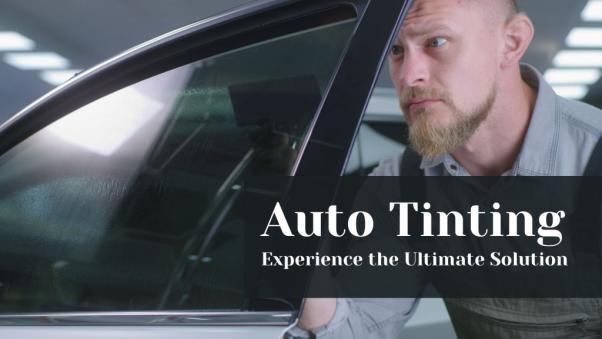Introduction: Auto tinting, also known as window tinting, is a popular option for vehicle owners looking to enhance their driving experience. It involves applying a thin film to the windows of a car, which offers several benefits such as privacy, UV protection, heat reduction, and improved aesthetics. However, before you decide to tint your car windows, it’s essential to understand the pros and cons associated with this modification. In this article, we’ll explore the advantages and disadvantages of auto tinting to help you make an informed decision.
Pros of Auto Tinting:
1. Enhanced Privacy: One of the primary reasons people choose auto tinting is to increase privacy inside their vehicle. Tinted windows make it difficult for outsiders to see inside, providing you with a sense of security and reducing the chances of theft or unwanted attention.
2. UV Protection: Auto tinting films are designed to block harmful UV rays from the sun. Prolonged exposure to UV radiation can cause skin damage and increase the risk of skin cancer. Tinted windows help protect both you and your passengers from these harmful rays, reducing the penetration of UV radiation into the car.
3. Heat Reduction: Tinted windows can significantly reduce the amount of heat that enters your vehicle, keeping the interior cooler during hot summer days. This can help improve the comfort of your ride, especially if you live in a region with scorching temperatures.
4. Glare Reduction: Excessive glare from the sun or headlights of other vehicles can impair your vision while driving, leading to eye strain and reduced safety. Auto tinting reduces glare by filtering out a portion of the incoming light, providing you with better visibility and a more comfortable driving experience.
5. Interior Protection: Sunlight can cause significant damage to your car’s interior, fading upholstery, cracking the dashboard, and deteriorating the overall appearance. Tinted windows help block harmful UV rays and minimize sun damage, prolonging the lifespan of your vehicle’s interior components.
Cons of Auto Tinting:
1. Legal Restrictions: Different regions and countries have specific regulations regarding the darkness and reflectivity of tinted windows. It’s crucial to research and comply with local laws to avoid legal consequences. Failure to adhere to these regulations may result in fines or the requirement to remove the tint.
2. Reduced Visibility at Night: Depending on the darkness of the tint, it can affect visibility, especially during nighttime driving. Tinted windows may reduce the amount of light entering the vehicle, making it slightly harder to see in certain conditions. However, with proper adjustment of mirrors and headlights, this issue can be mitigated.
3. Impaired Communication: Tinted windows can hinder communication between the driver and other road users, such as pedestrians or law enforcement officers. Hand signals or non-verbal cues may be less visible, potentially leading to misunderstandings or delays in communication.
4. Potential for Improper Installation: Improper installation of window tinting films can result in bubbles, peeling, or a distorted view. It’s crucial to choose a reputable and experienced professional to ensure a high-quality installation that adheres to industry standards.
Conclusion: Auto tinting offers numerous benefits, including enhanced privacy, UV protection, heat reduction, and glare reduction. However, it’s important to consider the legal restrictions, potential visibility issues at night, impaired communication, and the importance of proper installation. By weighing the pros and cons, you can make an informed decision about whether auto tinting is the right choice for you and your vehicle. Consult with a trusted Auto Tinting professional who can provide guidance and ensure a satisfactory outcome for your tinting needs.






